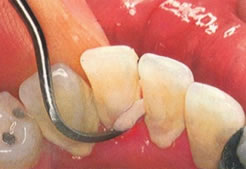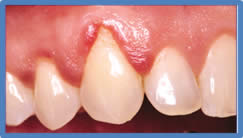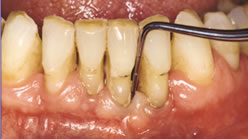Hygiene & Prevention
Promoting great oral health in Christchurch
Most patients will be referred to the dental Hygienist as part of their examination appointment. Dental hygienists are specially trained to work with the dentist in giving care to patients. They play an important role in dental health care and are mainly concerned with gum health, showing people correct home care and applying preventive materials to the teeth and gums.
-
What is the hygienist’s role in the practice?Open or Close

The hygienist’s main role is to professionally clean the teeth for the patient. This is usually called scaling and polishing. However, perhaps their most important role is showing the patient the best way to keep the teeth free of plaque. They also give advice on diet and preventing dental decay. The hygienist will work with your dentist to provide care tailored to your needs.
Scaling and polishing is usually pain-free. However, if you do have any discomfort the hygienist can use anaesthetic gels, or give you some local anaesthetic. It is important that you let the hygienist know at the time so they can help with your pain.
-
Gum disease (Gingivitis) Open or Close

A healthy set of gums should be pink and firm, and will keep your teeth securely anchored into place. Your gums should not bleed when your touch or brush them. If you develop gingivitis, it is your gums that will be affected. The main symptoms of gingivitis are:
tender, painful, red, swollen bleeding gums, this may be more noticeable during toothbrushing
For most patient’s routine hygienist appointments are sufficient at treating any gum problems and will require one appointment around the same time as their examination appointment. For patients that have not been to the hygienist in a while it may be necessary to have a series of longer appointments to get the gum disease under control.

Long-standing gingivitis can turn into periodontal disease. There are a number of types of disease and they all affect the tissues supporting the teeth.
As the disease gets worse the bone anchoring the teeth in the jaw is lost, making the teeth loose.
If the gum disease is not treated, the teeth may eventually fall out. For patients with active gum disease it may be necessary to have appointments every 3 months for a prolonged period of time.
-
What treatments are needed?Open or Close
Our team of hygienists will clean your teeth thoroughly to remove the scale. They may also use a periodontal probe to take depth measurements of the pockets between the teeth and the gum. You may also have x-rays taken to show the pocket depths or bone loss.
-
Is there anything else I need to know about gum disease?Open or Close
Gum disease is associated with diabetes; patients with gum disease are more likely to have diabetes and those patients with diabetes are more likely to have poorer diabetic control if they already have gum disease. Gum disease is also linked to heart disease and Alzheimer’s. There is growing evince that gum disease also has an adverse effect on several other diseases. Its not all bad news though - gum disease is a treatable condition and improved toothbrushing and prevention will result in less trips to the dentist in the long term!



